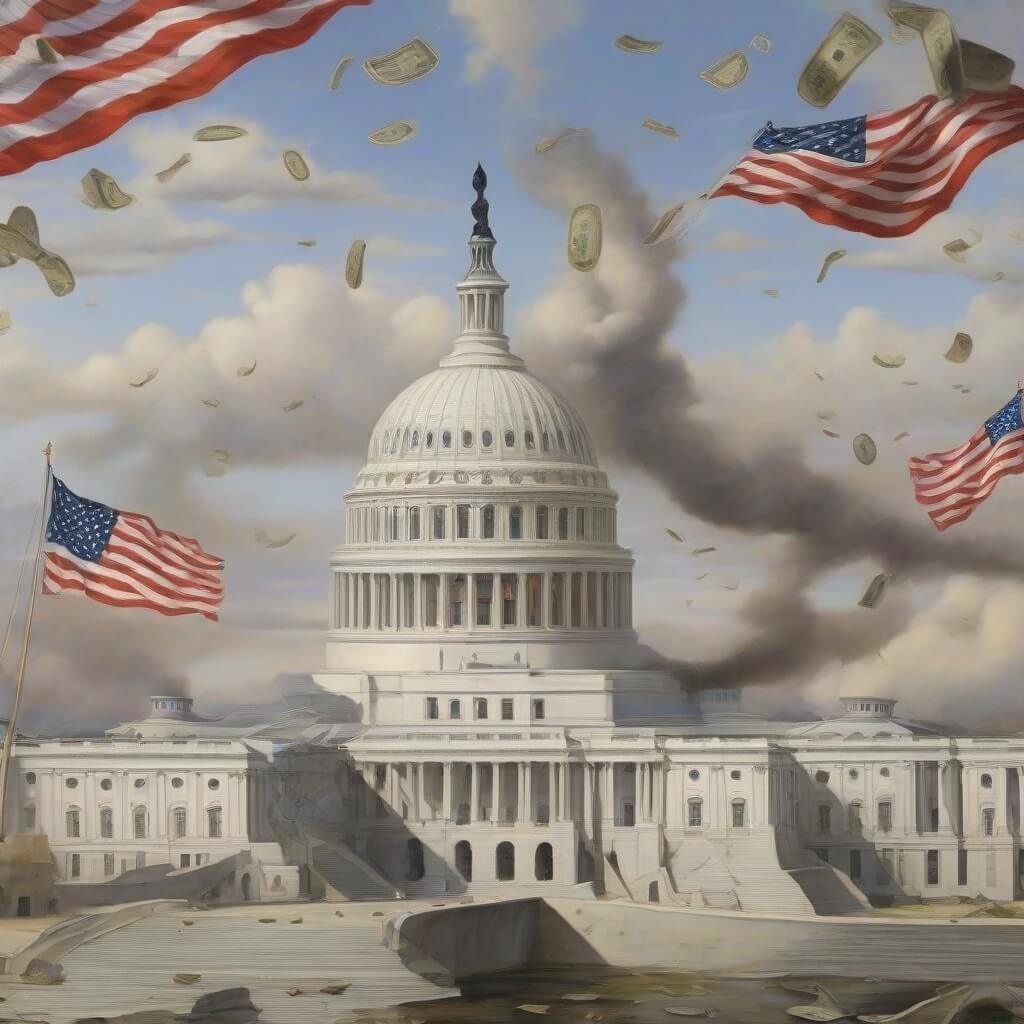With the U.S. debt soaring to a staggering $33.7 trillion, a figure that’s more than double what it was a decade ago and represents about 124% of the nation’s GDP, Congress is under increasing pressure to take decisive action.
The situation has escalated to the point where Moody’s, a leading credit rating agency, has issued a warning about potentially lowering the U.S. federal government’s credit rating due to political gridlock.
This alarming development has sparked a flurry of discussions and proposals in Congress about how to effectively tackle this fiscal behemoth.
Exploring Solutions Amid Rising Concerns
In response to this growing financial challenge, some lawmakers are advocating for the establishment of a commission to explore realistic solutions.
The commission’s task would be no small feat, considering the U.S. Treasury Department reported a jaw-dropping $659 billion in interest payments on the national debt in fiscal 2023 alone.
This staggering sum is a clear indicator of the dire need for a comprehensive strategy to manage the nation’s financial obligations.
Senator Mike Braun, a Republican and a member of the Budget Committee, emphasized the urgency of addressing deficits and debt, predicting they could become a central issue in the 2024 elections.
He pointed out the increasing burden of interest payments, which could start to overshadow funding for critical federal programs, from defense to homeland security.
This debt issue stems from a combination of factors, including tax cuts that reduced revenue and increased spending by both political parties, partly in response to the COVID-19 pandemic.
Democrats’ efforts to expand social safety net programs have also contributed to the escalating debt.
A Bipartisan Approach to a Monumental Challenge
Moody’s recent decision to downgrade the U.S. credit rating outlook from “stable” to “negative” underscores the urgency of the situation.
This follows a similar action by Fitch ratings agency in August, which downgraded the U.S. government’s top credit rating due to Congress’s near-brush with defaulting on its debts.
Recognizing the gravity of the U.S.’s fiscal challenges, Michael Peterson, CEO of the Peter G. Peterson Foundation, a non-partisan organization focused on long-term U.S. fiscal issues, supports the idea of a bipartisan commission.
He and other experts have offered various recommendations for tackling the debt, such as implementing a new tax on greenhouse gas emissions and revising the government’s method for calculating cost-of-living adjustments for federal benefit programs.
Economists Dana Peterson and Lori Esposito Murray of the Conference Board, a non-profit business research group, proposed a goal of reducing the debt-to-GDP ratio to 70% by 2043 through a blend of tax increases and spending cuts.
Their recommendations also include taxing higher-income earners more for Social Security and gradually increasing the full retirement age to 69 from 67.
In Congress, Democratic Senator Joe Manchin and Republican Senator Mitt Romney, both retiring at the end of next year, have sponsored a bill to create a bipartisan commission, with its conclusions expected in 2025.
A similar bill is pending in the House. House Speaker Mike Johnson recently expressed support for the commission, signaling a potential shift towards a more unified approach to the debt crisis.
Despite the bipartisan push for a commission, the proposal has met with skepticism from progressives. Independent Senator Bernie Sanders, who caucuses with Democrats, criticized the idea as a potential route to cutting Social Security.
He suggested lifting the cap on taxable income to extend the Social Security trust fund’s life instead. Several lawmakers argue that for the commission to be effective, it must have the authority to compel Congress to act on its recommendations.
This could force Republicans to either support the proposed measures or abandon their long-standing opposition to tax increases.
As Congress grapples with this monumental task, the challenge will be to find a balanced, equitable solution that addresses the root causes of the soaring U.S. debt while ensuring the nation’s long-term financial health and stability.
With the clock ticking and the stakes higher than ever, the need for decisive, bipartisan action has never been more pressing.





